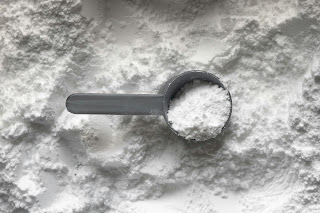Is lemon water a weight loss fix?
This summer hasn’t been as warm as we’d expected. But I’m always one to promote the importance of keeping hydrated even if it’s not scorchingly hot.
There are so many myths around hydration that I thought we’re
due for another round of busting nutrition myths, but a drinks edition.
The myths I’m going to cover are:
- ‘Lemon water helps you lose weight’
- ‘Fruit juice is bad for you’
- ‘You need protein shakes to get enough protein’
So, get yourself a refreshing drink, and read on.
Lemon water helps you lose weight – MYTH
The idea that squeezing some lemon juice into a glass of
water is a magic cure-all irks me. I’ve seen that lemon water helps you lose
weight, aids digestion, clears up your skin, and prevents kidney stones.
These are some tall promises.
I’m going to focus on the weight loss side of things, but I
can tell you that all the other things it supposedly does are also a stretch.
I couldn’t actually find any scientific studies that looked
at lemon water and weight loss. But I did find research that shows people that
have good levels of vitamin C in the body burn more fat when doing moderate
exercise, which can lead to weight loss. And lemons are a source of vitamin C.
But it’s a bit of a leap from thinking that a glass of lemon
water on its own every day will lead to weight loss.
It’s also worth remembering that lemon water is acidic. Acid
likes to break things down. Your teeth being one of them. The more frequently
someone has acidic drinks like lemon water, the higher risk of tooth enamel
wearing away. This leaves your teeth extra sensitive and discoloured. Not fun.
To summarise, by mixing lemon juice and water all we’ve
achieved is some zesty water that contains vitamin C, not a powerful weight
loss regimen.
Fruit juice is bad for you – MYTH
I see it all the time that fruit juice is bad for you. I even made a whole blog post about it when a certain doctor declared that orange juice is worse than Coca Cola. You can read it here.
Let’s clear things up.
Yes, fruit juice contains sugar. Yes, an excess of sugar can
have negative health effects.
But it’s important to remember that the sugar is coming from
fruits. Fruits are a powerhouse of nutrients; essential nutrients that our
bodies need to function properly. A 150ml glass of fruit juice also counts as
one portion out of your 5 portions of fruit and vegetables a day.
So, it’s not fair to have a general statement that fruit
juice is bad. It can be a really useful way to get some nutrition.
You need protein shakes to get enough protein – MYTH
While protein shakes can be an easy and convenient way to up
your protein intake, they’re not crucial for the average person.
The recommended amount of protein needed for normal body
functioning is 0.75g of protein per kg of body weight. This means that if
someone weighed 70kg, they’d need 52.5g of protein a day (70 x 0.75).
If you exercise frequently and want to gain muscle, you
could up this to 1.5g of protein per kg of body weight. Again, if someone
weighs 70kg, this would be 105g of protein per day.
That may sound like a lot, but it can be done.
Animal and plant proteins are both great options. Some
examples are:
- 100g of chicken breast has 33g of protein.
- 2 slices of white bread had 7g of protein.
- 25g of nuts has 6g of protein.
- 100g of beef steak has 31g of protein.
- 100ml of milk has 3.5g of protein.
- ½ tin of baked beans has 10g of protein.
I’ll give an example day of eating and highlight the protein
content of each meal.
- Breakfast: cornflakes with milk, and a banana - 7g protein
- Mid-morning: handful of mixed nuts - 6g protein
- Lunch: creamy cheesy chicken pasta - 45g protein
- Dinner: chilli con carne with rice – 35g protein
- Dessert: yoghurt with berries and honey – 6g protein
- Drinks: tea/coffees with milk and biscuits – 3g of protein
- Total: 102g protein.
And not a protein shake in sight.
You can get enough protein from food sources. It also means
that you get all the other nutrients from that food too. For example, if you
eat a chicken breast there's protein, but also vitamin B12, zinc, and vitamin
B6, to name a few.
It’s well known that protein is one of the nutrients people tend to over consume, so it’s not one to worry about.
I hope you’ve enjoyed this edition of busting nutrition myths, drinks edition and I've cleared up a few things for you.
Key points:
- Adding lemon to water isn’t a weight loss method. It creates water that contains some vitamin C.
- Fruit juices aren’t bad for you. They do contain sugar but also vitamins and minerals.
- Protein shakes aren’t needed to get enough protein. You can get protein from animal and plant foods.
Bye for now 👋
References:
Acid and dental erosion: https://onlinelibrary.wiley.com/doi/10.1111/adj.12201
Vitamin C and fat loss: https://pubmed.ncbi.nlm.nih.gov/15930480/
Protein content of foods: https://www.nutrition.org.uk/nutritional-information/protein/
https://assets.publishing.service.gov.uk/media/5a7ce969ed915d7c849adfd8/dh_128550.pdf





.jpg)

This comment has been removed by a blog administrator.
ReplyDelete